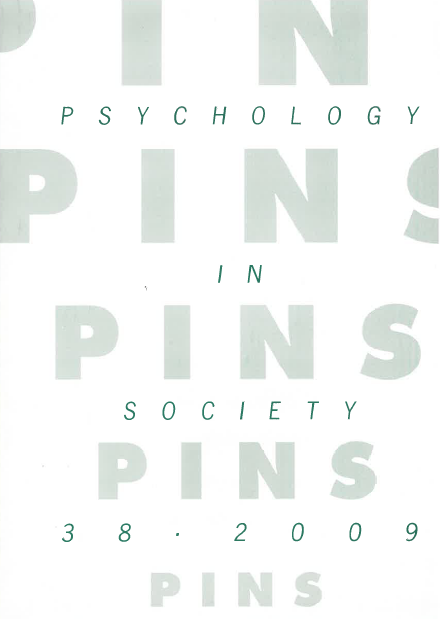DISCOURSE AND PSYCHOANALYSIS: TRANSLATING CONCEPTS INTO “FRAGMENTING” METHODOLOGY
DOI:
https://doi.org/10.17159//2309-8708/2009/n38a1Abstract
There is a growing body of work that draws on psychoanalytic interpretive strategies to enrich our understanding of the psychological processes involved in an individual’s investment in particular discursive positions. This work champions the irreducibility of the social and the psychological, exploring the way in which the desires and wishes of the individual mediate the accessibility of social discourses. However, employing psychoanalysis as a framework for interpreting text necessarily means proceeding tentatively: rather than an individualising, theory-driven tool, the authors argue for its use in a way that “fragments” texts. Specifically, we demonstrate how psychoanalytic interpretation might be grounded in a fine-grained narrative analysis as well as in a reflexive interpretation of the research relationship, in order to seek ways to open out the text to produce various new discursive forms, rather than to “fix” their meaning.
Downloads
Downloads
Published
How to Cite
Issue
Section
License
This journal is an open access journal, and the authors' and journal should be properly acknowledged, when works are cited.
Authors may use the publishers version for teaching purposes, in books, theses, dissertations, conferences and conference papers.
A copy of the authors’ publishers version may also be hosted on the following websites:
- Non-commercial personal homepage or blog.
- Institutional webpage.
- Authors Institutional Repository.
The following notice should accompany such a posting on the website: “This is an electronic version of an article published in PINS, Volume XXX, number XXX, pages XXX–XXX”, DOI. Authors should also supply a hyperlink to the original paper or indicate where the original paper (http://www.journals.ac.za/index.php/pins) may be found.
Authors publishers version, affiliated with the Stellenbosch University will be automatically deposited in the University’s’ Institutional Repository SUNScholar.
Articles as a whole, may not be re-published with another journal.
The copyright of the article(s) lies with the author(s).
The copyright of the journal lies with PINS-psychology in Society.
The following license applies:
Attribution CC BY-NC-ND 4.0 - https://creativecommons.org/licenses/by-nc-nd/4.0/

